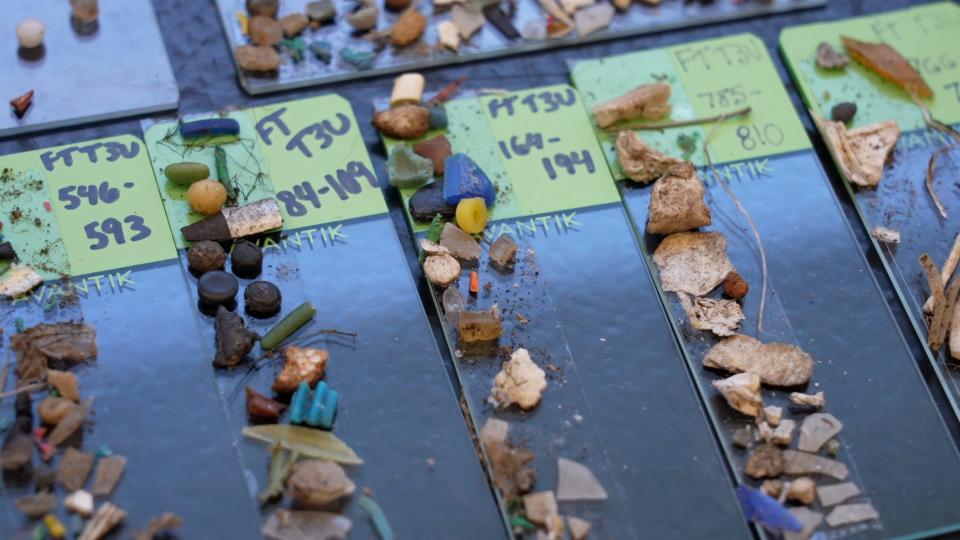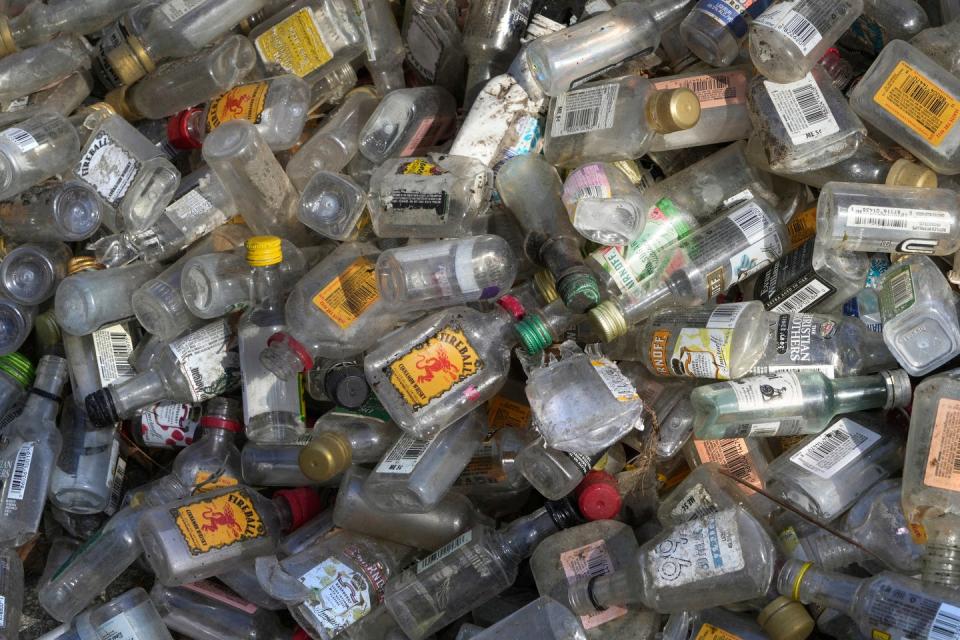Study shows shocking amount of microplastics in Bay. Here's what we can do to help | Opinion
Jed Thorp is the state director of Clean Water Action Rhode Island. Mike Jarbeau is the Narragansett Baykeeper with Save The Bay.
The headline from Alex Kuffner’s Sept. 2 news story about the recent University of Rhode Island study on plastics pollution summed things up perfectly: "URI researchers find 'shocking' amounts of microplastics in Narragansett Bay sediments." Scientists from URI estimate that the top 2 inches of bottom sediment in the Bay now contain roughly 1,000 tons of microplastics – a staggering amount that raises serious concerns about the Bay’s long-term health.
Their analysis concluded that much of the microplastic pollution likely originated from single-use beverage containers.
These findings are troubling, but not surprising for anyone who has been part of a neighborhood or shoreline cleanup in recent years. Data from Save The Bay and others find that beverage containers (and beverage container pieces) are consistently the most common items found by cleanup volunteers. It’s clear that the systems we currently have in place to prevent litter and marine debris are not working. We must do better – and doing better will mean doing some things differently.

Last year, environmental organizations, watershed groups and land trusts came together to ask the General Assembly to finally adopt a recycling refund system for beverage containers, also known as a "bottle bill." Recycling refund systems place a small (five or 10 cent) refundable deposit on beverage containers which is returned to the consumer when the containers are returned to a retail location or redemption center.
Many of our neighboring states have had bottle bills in place for decades, which means we don’t need to guess as to how these systems work or what they accomplish. Decades of data from those states – and countries around the world – show that bottle bills result in a noticeable reduction in litter and marine debris, while also improving the percentage of beverage containers that are captured and recycled.
Oregon and Maine – two of the best performing systems in the U.S. – recycle around 85% of their beverage containers. (Rhode Island is around 39%.) When Lithuania enacted its bottle bill in 2016, the redemption rate jumped from 34% to 74% in year one, and up to 91% by year two. Bottle deposit systems that are well-designed and kept up-to-date are the most effective policy tool we have to combat beverage container litter and improve recycling.
Several versions of a bottle bill have been introduced in Rhode Island over the years. Last year’s legislation was strongly supported by many members of the House and Senate, but failed to get across the finish line. Instead, the General Assembly created a joint House and Senate legislative study commission to think through the specifics of how to best reduce beverage container pollution.
While beverage companies, retailers and liquor stores have each expressed their concerns about previous versions of a bottle bill, it’s important to note that none were outright opposed to the concept and all indicated a willingness to support a bill if their specific concerns could be addressed. With over 40 such systems in place throughout the U.S. and globally, we can identify which systems work the best – and why – and create a bottle deposit system for Rhode Island that reduces litter and plastic pollution and improves recycling, while also minimizing any burden to beverage companies and retailers.
With plastic pollution continuing to pile up in our storm drains, our rivers and the Bay, it’s time to get serious about solutions and put proven systems in place that will make a real and measurable difference.

This article originally appeared on The Providence Journal: Decades of data show that bottle bills result in a noticeable reduction in litter and marine debris.

